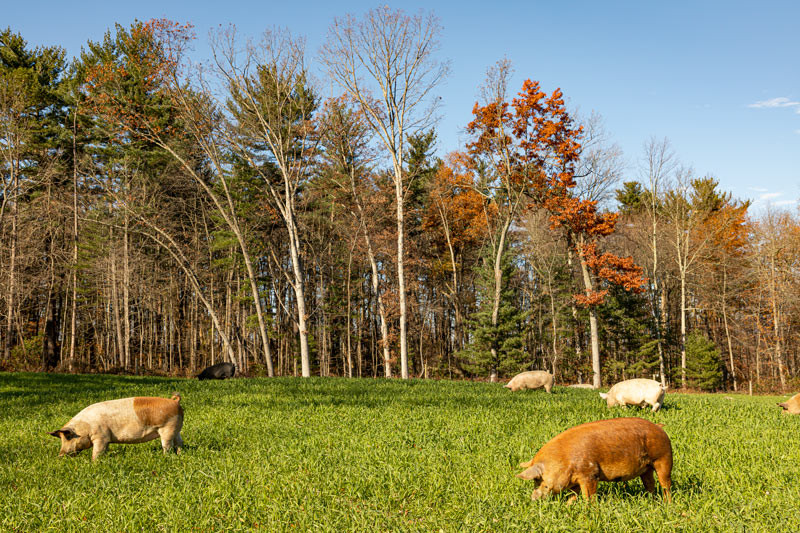The Beginnings of a Big Deal
posted on
March 23, 2009

“So much about life in a global economy feels as though it has passed beyond the individual’s control—what happens to our jobs, to the prices at the gas station, to the vote in the legislature. But somehow food still feels a little different. We can still decide, every day, what we’re going to put into our bodies, what sort of food chain we want to participate in. We can, in other words, reject the industrial omelet on offer and decide to eat another. This may not sound like a big deal, but it could be the beginnings of one.” – Michael Pollan
This quotation from Pollan’s Omnivore’s Dilemma really struck a chord with me. I’d been ruminating along similar lines ever since Bernard Sweeney’s closing keynote speech at the 2009 PASA Conference last month. Sweeny’s presentation focused on making our ‘local watershed’ and our ‘local foodshed’ one and the same.
The harmonizing point that I was expecting Sweeny to make but he never did is this: there is no magic in simply buying local. Buying local can only positively affect the environment or the health of the community when the local foods you are purchasing are grown organically and sustainably. Buying from a local, chemical-dependent farmer may help the local economy or even a sense of community closeness, but it does little for the watershed, the environment, your health, the health and happiness of farm animals, and the health of your children. The kind of food chain you choose to support may not sound like a big deal, but all big deals have small beginnings.
So how big is the deal? How much do your personal, local, individual, organic buying decisions affect PA and the Chesapeake Bay watershed? Well, you are, without a doubt, the most important player in this game. Never underestimate the tremendous power of your food choices. Let me tell you what you have done so far.
Since you have declared your willingness to buy organic, we at Shankstead EcoFarm and The Family Cow have taken the organic pledge of chemical abstinence. That is 400 acres of organic grassland supported by you. Several neighboring crop famers have decided to manage their combined 700 plus acres of crops organically also since we have a need for organic hay and straw for the winter. Is a new 1100 acre certified organic section all within the Chesapeake Bay watershed within the last 4 years a big deal? It is at least a beginning.
Maybe you never thought of your food purchases in these environmental overtones. And that is okay, too. You were only looking for the purest, best tasting, immunity building, health enhancing foods that money could buy to nourish yourself and your children. We understand, and that is not a wrong motive. One of the rare beauties of local, organic eating is the unique opportunity to choose the right thing, and the most pleasurable thing at the same time. And that is a big deal.
Your Farmer,
Edwin Shank



